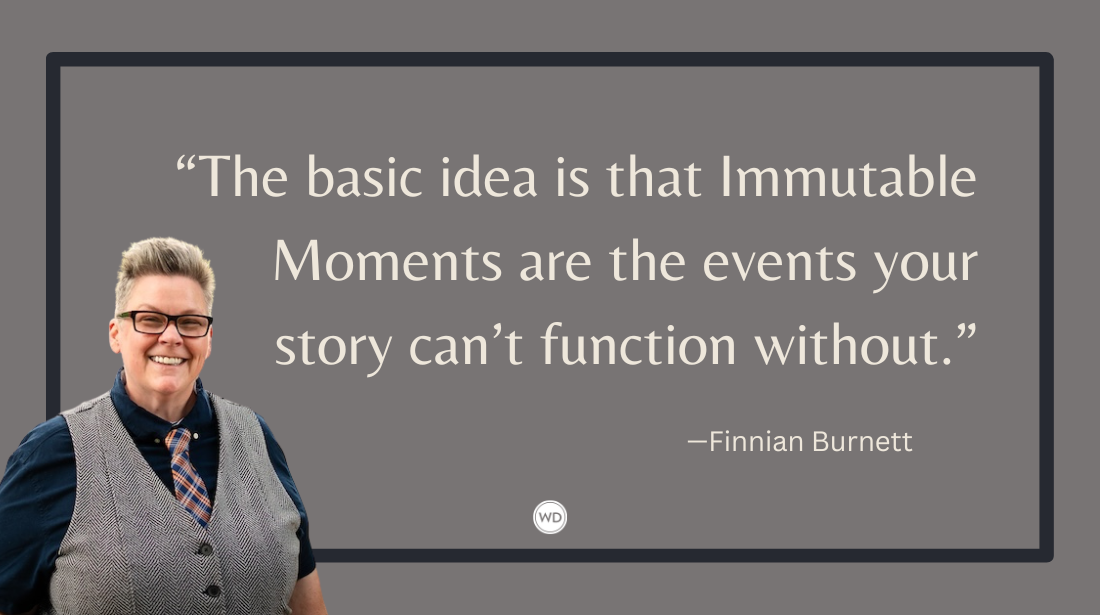What Is Dramatic Irony: And How to Use It to Create Page-Turning Fiction
Award-winning author Tim Weed discusses dramatic irony, what it is, and how to use it to create page-turning fiction readers can’t resist.
Dramatic irony in fiction happens when the reader is in the position of having more information than one or more of the characters.
Imagine if you were sitting on a hillside watching someone walk down a railroad track, and then you saw a train coming down the track that the person you’re watching couldn’t see. How would you feel about that? Wouldn’t you want to run down and tell them to get off the track? But what if you couldn’t do that? What if you were frozen in place? Dramatic irony gives readers a sense of helpless dread that is a source of enormous discomfort. It’s all about making readers uncomfortable, and putting them in a situation where the only way to relieve their discomfort is to turn the page.
Consider the opening of Noah Hawley’s literary thriller, Before the Fall:
As she does at a thousand random moments out of every day, Maggie feels a swell of motherly love, ballooning and desperate. They are her life, these children. Her identity. She reaches once more to readjust her son’s blanket, and as she does there is that moment of weightlessness as the plane’s wheels leave the ground. This act of impossible hope, this routine suspension of the physical laws that hold men down, inspires and terrifies her. Flying. They are flying. And as they rise up through the foggy white, talking and laughing, serenaded by the songs of 1950s crooners . . . none of them has any idea that sixteen minutes from now their plane will crash into the sea.
Do you see how dramatic irony is working here? We relate to Maggie’s parental love of her children. We don’t know her, but we have this sweet little scene of a family taking off in an airplane. We feel a little nervousness about flying, which we can probably relate to, but then, in the last line, we get this terrible infusion of dramatic irony: “none of them has any idea that sixteen minutes from now their plane will crash into the sea.”
Gulp. We know what’s going to happen and the characters don’t. And that creates within us this intense feeling of dread. This is dramatic irony.
It’s not just that we now know what’s going to happen and we’re curious to find out how and why it happens. It’s that we’re deeply concerned about this little family, and there’s nothing we can do to help them. It makes us feel tense and uncomfortable, and the only way to relieve that discomfort is to turn the page. Dramatic irony is a major source of narrative drive. It’s a powerful page-turning element.
We hear a lot these days about “spoiler alerts,” and I think as readers and writers of fiction we sometimes have this blind faith in the supreme power of mystery and surprise. If you’re a fiction writer you’ve probably heard in workshops or from critique partners about the need to set up a “twist” or a “reveal,” and not to “telegraph” what’s coming.
But mystery and surprise aren’t the whole ballgame when it comes to narrative drive in fiction; far from it, actually. Dramatic irony is often an even more powerful tool, meaning that well-placed spoilers are sometimes exactly what you need to keep those pages turning.
Tim Weed is on the core writing faculty of the Newport MFA and is the co-founder of the Cuba Writers Program. He’s the author of two previous books of fiction, and his writing has appeared in Literary Hub, The Millions, The Writer’s Chronicle, Talking Points Memo, and elsewhere. Tim is a two-time winner of the Writer’s Digest Annual Fiction Awards and has been shortlisted for the Tobias Wolff Award for Fiction and many others. His forthcoming novel, The Afterlife Project, a finalist for the Prism Prize in Climate Fiction, is available for preorder now and will be released by Podium Publishing in print, ebook, and audio in June, 2025.








